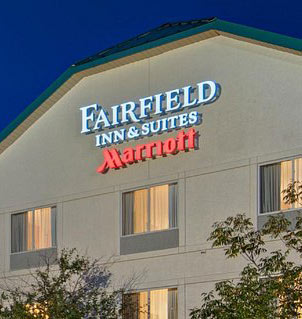Ways to Give

You Make it Possible
DDRC provides over 600,000 hours of supportive services a year to help individuals with Intellectual and Developmental Disabilities (I/DD) have the opportunity to thrive in their community. Every dollar raised by our supporters goes directly to our ongoing programs and efforts.
Ways to Give
One-time or Recurring Donation
Your generosity keeps DDRC’s essential programs running, whether it’s a one-time contribution or a recurring gift. Every dollar you give helps individuals with I/DD access vital support to reach their goals and participate fully in their communities.
Check Donations
Prefer to donate by check? Please make checks payable to DDRC and send them to:
Developmental Disabilities Resource Center
11177 West 8th Avenue
Lakewood, CO 80215
Tribute Donations
Honor a loved one or commemorate a special occasion with a tribute gift. Your thoughtful contribution makes a lasting impact in their name.
Fundraise
Host a fundraiser to support DDRC! Whether it’s a bake sale, a fun run, or a creative event, your efforts can help change lives.
Stock Donations
Support DDRC’s mission by donating stocks or securities. It’s a smart way to give while benefiting from potential tax advantages.
Legacy and Planned Donations
Make a lasting impact by including DDRC in your estate plans. Your legacy ensures future generations with I/DD have the resources to thrive.
Host a House Party
Bring people together to share DDRC’s mission. Hosting a house party is a meaningful (and fun!) way to spread awareness and inspire support.
King Soopers Donations
Link your King Soopers rewards card to DDRC, and every time you shop, a portion of your purchase supports our programs. It’s one of the easiest ways to show your support!
Tax Refund Donations
Turn your tax refund into an opportunity to give back with one simple step: if you expect a state income tax refund, you can donate some or all of it through ReFund CO. Once you complete your return, enter registration #20023003423 for DDRC, and you should be all set.
Vehicle Donations
Got an old car taking up space? Instead of trading it, selling it, or storing it in the garage for years on end, you can donate it to Vehicles for Charity all while supporting us and our mission.
Amazon Wishlist
If you want to help us out by providing essential and much-needed supplies directly, try shopping on our Amazon Wishlist.
Stay up to date with everything DDRC!
Putting Your Donations to Work

Donation of $27,500
A gift of $27,500 can underwrite one individual’s ability to participate in the Adult Day Services program for an entire year. These services and supports enable individuals to access and participate in typical community activities like work, recreation, and senior citizen activities.

Donation of $10,000
Residential support services can make all the difference for individuals with I/DD looking to lead a life full of activities, learning, friendships, and opportunities to make meaningful community connections. When you make a $10,000 tribute gift in honor of a family member, you can fund this resource for one individual for 2 months.

Donation of $3,000
When you fundraise $3,000, you can provide an opportunity for an individual to participate in therapeutic recreation and connect to their community.

Donation of $270
A $270 donation can gift an individual and their family one day of respite care. Respite care has been shown to help sustain family caregivers’ health and well-being, avoid or delay out-of-home placements and provide a positive experience for the person receiving care
Corporate Donations
Fund a Program
If inclusivity and community are key pillars in your organization’s mission, this is your chance to talk the talk and walk the walk. Directly support our specialized programs through an outright gift and instantly make a tangible difference for those we serve.
Sponsor an Event
Sometimes the best way to show your support for a cause is to sponsor an event. Or, if your company wants to support our cause here at DDRC through organizing a fundraising event, reach out to us!
Donate Your Services
From window washing services to vehicle maintenance, gardening, coaching recreational programs, and more, your expertise can make a real difference. If you offer your organization’s services for free or at a discount, you can show your passion and commitment to our cause here at DDRC by reducing our program costs.
Hire a Program Participant
By employing individuals with intellectual and developmental disabilities, you not only help them gain independence and valuable work experience but also foster a more inclusive and diverse workplace.
Host a Benefit
Gala events and auctions offer a unique opportunity to bring the community together in support of DDRC’s mission. They’re not just fundraising events—they’re a celebration of the individuals we serve and a chance to make a real difference in their lives.
Offer Gift Matching
Maximize the effect of your company’s generosity by matching your employees’ donations to DDRC. This partnership not only amplifies the financial support we receive, but it also motivates your team to get involved and make a difference. It’s an easy way to strengthen your commitment to the community while supporting a cause that transforms lives.
Promote I/DD Awareness Month
Join us in raising awareness for individuals with intellectual and developmental disabilities (I/DD) and celebrating their achievements this March, in honor of I/DD Awareness Month. Whether you’re looking to help promote our message through blog posts, social media posts, internal-facing emails, or customer-facing emails, your support can make a meaningful impact.
Invite Us to Speak
Invite DDRC to speak at your workplace or event and let us share the inspiring stories of the individuals we serve. We’ll walk you through the work we’re doing to create a more inclusive community and show you how you can get involved. By hearing firsthand about our mission and the impact we’re making, you’ll gain a deeper understanding of the challenges faced by those with intellectual and developmental disabilities, and how we can all contribute to their success.
Partnerships

Fairfield Inn and Suites
Fairfield Inn and Suites are valued partners of ours who have supported us through sponsorship of our signature golf tournament and by providing meaningful employment to a DDRC program participant.

ReMax Alliance
ReMax have been loyal supporters of our mission for more than 2 years with their Giving Back Group. In this group, they donate 20% of their commission to the local charity or nonprofit of their client’s choosing.

6&40 Brewing Co
Every June, 6&40 Brewing generously names us as their “Charity of the Month” to help us raise funds to further our mission.

Masonic Lodge #170
“Happy Holidays” is a sentiment that should be felt by everyone. That’s why Masonic Lodge #170 works as hard as they do to support participants and residents at DDRC every winter with a variety of gift cards.
Connect with the DDRC Development Team
Our team is here to connect you with the DDRC mission and vision. We are excited to learn how our values align and open up the possibilities to improve the lives of those around us, together.